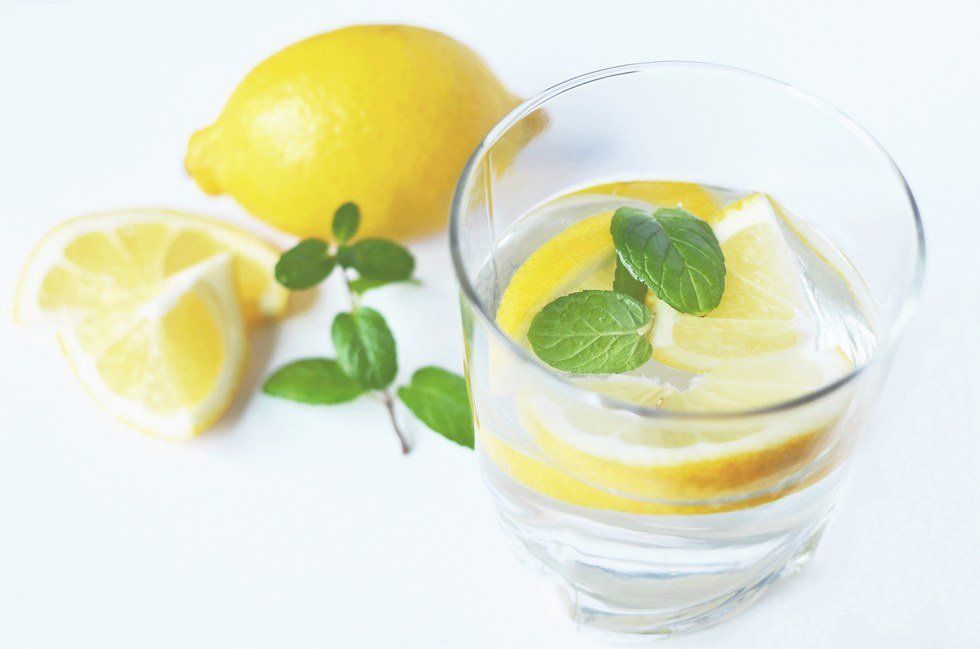Pregnant or food baby? If you've ever named your food baby after a love affair with your Chipotle burrito, you've probably experienced bloating. Remember, bloating is not bad and none of the foods that cause bloating are bad. The point of this list is to provide some explanations for why you may be experiencing bloating, and a few suggestions to remedy your discomfort. Disclaimer: I am not a doctor, nor am I a nutritionist, these are just tips and tricks that I've personally researched and experienced firsthand. Depending on the severity of your irritation, you may want to moderate your consumption of bloat-causing foods, or eat them anyways and be prepared to whip out the stretchy pants.
Causes of Bloating
Fibrous veggies and beans: It may seem counter-intuitive that beans and fibrous, green vegetables cause bloating because they are extremely healthy. The higher fiber content bulks up stool to keep things moving in your digestive tract; however, too much fiber can cause bloating. Make sure to hit the middle and eat the suggested amount of 25-30 grams per day. Just because fibrous foods can cause bloating doesn't mean you should avoid them; just don't be shocked when your healthy green meal leaves you feeling bloated and full.
Carbonated beverages: While carbonated beverages are a great option to help keep you feeling full in between meals and satisfy that "sweet" craving fix, the bubbles in the beverage that cause that satiated feeling will also puff you up.
Whey protein/dairy: If you are lactose intolerant or sensitive to dairy, whey protein may be what's causing that uncomfortable bloating feeling. Consider switching to a plant-based or soy protein powder or go off dairy for a while to see if there's any difference when you slowly add it back in to your diet.
Overeating: This one's a no-brainer. When you overeat, especially voluminous, large-portioned foods, your stomach will expand, causing (in my opinion) the most uncomfortable type of bloating. Think post-Thanksgiving couch coma.
Swallowing air: If you drink a lot of water or chew a lot of gum you're swallowing air along with the liquid (and spit). Try drinking with a straw so you only swallow the liquid and avoid gulping air down, causing your stomach to fill with excess air.
Sugar alcohols: Sugar alcohols, found in sugar substitutes like flavored gum and many low calorie and low sugar processed foods (even the fitspo cult-favorite low cal ice cream, Halo Top gasp!) can cause some people digestive issues
Remedies for Bloating
Peppermint: Peppermint tea, derived from peppermint oil, is a natural remedy for a host of health issues and a great digestive aid. Peppermint tea can instantly settle an uncomfortable stomach and is a calming, non-caffeinated drink, perfect for cozying up in bed after a large dinner.
Ginger: Ginger has anti-inflammatory properties which are great for reducing pain and combating nausea. Ginger has also been proven to help treat chronic indigestion by helping to speed up the emptying of the stomach. My favorite ways to have ginger include, Canada Dry Ginger Ale (the only ginger ale to contain real ginger) and lemon-ginger teas.
Yoga: Yoga, especially yoga twists from the navel, is amazing for getting things moving in your digestive tract. If you're feeling uncomfortably bloated and full, wait 30 minutes after eating and try a few yoga twists. You can search for some helpful videos on YouTube, my favorite guru is Yoga by Candace.
Water: There's nothing it can't do. Although it can sometimes can give you that full/slosh-y feeling, water is great for combating bloating. If you drink enough water, spaced throughout the day, your body will get used to the feeling of being full of water. Drinking water helps when eating a high-sodium meal, another common cause of bloat. It will pass through your urinary tract, flushing out your system, and keeping everything moving. Also, warm water with lemon is a classic way to detox and promote healthy digestion, especially in the morning before eating or drinking anything else.






















